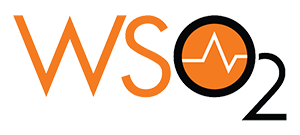
The Apache HTTP Server is a free and open-source cross-platform web server software, released under the terms of Apache License 2.0. It is developed and maintained by a community of developers under the auspices of the Apache Software Foundation.

Jakarta EE, formerly Java Platform, Enterprise Edition and Java 2 Platform, Enterprise Edition (J2EE), is a set of specifications, extending Java SE with specifications for enterprise features such as distributed computing and web services. Jakarta EE applications are run on reference runtimes, which can be microservices or application servers, which handle transactions, security, scalability, concurrency and management of the components they are deploying.

Apache Tomcat is a free and open-source implementation of the Jakarta Servlet, Jakarta Expression Language, and WebSocket technologies. It provides a "pure Java" HTTP web server environment in which Java code can also run. Thus it is a Java web application server, although not a full JEE application server.

Solr is an open-source enterprise-search platform, written in Java. Its major features include full-text search, hit highlighting, faceted search, real-time indexing, dynamic clustering, database integration, NoSQL features and rich document handling. Providing distributed search and index replication, Solr is designed for scalability and fault tolerance. Solr is widely used for enterprise search and analytics use cases and has an active development community and regular releases.

Cassandra is a free and open-source, distributed, wide-column store, NoSQL database management system designed to handle large amounts of data across many commodity servers, providing high availability with no single point of failure. Cassandra offers support for clusters spanning multiple datacenters, with asynchronous masterless replication allowing low latency operations for all clients. Cassandra was designed to implement a combination of Amazon's Dynamo distributed storage and replication techniques combined with Google's Bigtable data and storage engine model.

WSO2 is an open-source technology provider founded in 2005. It delivers software and cloud solutions that provide foundational technologies for application development and identity and access management (IAM). This represents an expansion upon its original focus on integrating application programming interfaces (APIs), applications, and web services locally and across the Internet.
Progress Chef is a configuration management tool written in Ruby and Erlang. It uses a pure-Ruby, domain-specific language (DSL) for writing system configuration "recipes". Chef is used to streamline the task of configuring and maintaining a company's servers, and can integrate with cloud-based platforms such as Amazon EC2, Google Cloud Platform, Oracle Cloud, OpenStack, IBM Cloud, Microsoft Azure, and Rackspace to automatically provision and configure new machines. Chef contains solutions for both small and large scale systems.
Apache Cordova is a mobile application development framework created by Nitobi. Adobe Systems purchased Nitobi in 2011, rebranded it as PhoneGap, and later released an open-source version of the software called Apache Cordova. Apache Cordova enables software programmers to build hybrid web applications for mobile devices using CSS3, HTML5, and JavaScript, instead of relying on platform-specific APIs like those in Android, iOS, or Windows Phone. It enables the wrapping up of CSS, HTML, and JavaScript code depending on the platform of the device. It extends the features of HTML and JavaScript to work with the device. The resulting applications are hybrid, meaning that they are neither truly native mobile application nor purely Web-based. They are not native because all layout rendering is done via Web views instead of the platform's native UI framework. They are not Web apps because they are packaged as apps for distribution and have access to native device APIs. Mixing native and hybrid code snippets has been possible since version 1.9.
The Apache Traffic Server (ATS) is a modular, high-performance reverse proxy and forward proxy server, generally comparable to Nginx and Squid. It was created by Inktomi, and distributed as a commercial product called the Inktomi Traffic Server, before Inktomi was acquired by Yahoo!.
Deltacloud is an application programming interface (API) developed by Red Hat and the Apache Software Foundation that abstracts differences between cloud computing implementations. It was created in 2009.
AWS Elastic Beanstalk is an orchestration service offered by Amazon Web Services for deploying applications which orchestrates various AWS services, including EC2, S3, Simple Notification Service (SNS), CloudWatch, autoscaling, and Elastic Load Balancers. Elastic Beanstalk provides an additional layer of abstraction over the bare server and OS; users instead see a pre-built combination of OS and platform, such as "64bit Amazon Linux 2014.03 v1.1.0 running Ruby 2.0 (Puma)" or "64bit Debian jessie v2.0.7 running Python 3.4 ". Deployment requires a number of components to be defined: an 'application' as a logical container for the project, a 'version' which is a deployable build of the application executable, a 'configuration template' that contains configuration information for both the Beanstalk environment and for the product. Finally an 'environment' combines a 'version' with a 'configuration' and deploys them. Executables themselves are uploaded as archive files to S3 beforehand and the 'version' is just a pointer to this.
Topology and Orchestration Specification for Cloud Applications (TOSCA), is an OASIS standard language to describe a topology of cloud based web services, their components, relationships, and the processes that manage them. The TOSCA standard includes specifications of a file archive format called CSAR.
Kubernetes is an open-source container orchestration system for automating software deployment, scaling, and management. Originally designed by Google, the project is now maintained by the Cloud Native Computing Foundation.
Cloud Application Management for Platforms (CAMP) is a specification for managing applications in the context of a platform as a service (PaaS) system. CAMP is designed to address the needs of a high-level PaaS system; one in which the consumer provides application artifacts and specifies which provider-supplied services are required to realize these artifacts as an application. The details of the infrastructure used to support these services are hidden from the consumer by the provider of the PaaS system.

React is a free and open-source front-end JavaScript library for building user interfaces based on components. It is maintained by Meta and a community of individual developers and companies.

Apache Flink is an open-source, unified stream-processing and batch-processing framework developed by the Apache Software Foundation. The core of Apache Flink is a distributed streaming data-flow engine written in Java and Scala. Flink executes arbitrary dataflow programs in a data-parallel and pipelined manner. Flink's pipelined runtime system enables the execution of bulk/batch and stream processing programs. Furthermore, Flink's runtime supports the execution of iterative algorithms natively.
SensorThings API is an Open Geospatial Consortium (OGC) standard providing an open and unified framework to interconnect IoT sensing devices, data, and applications over the Web. It is an open standard addressing the syntactic interoperability and semantic interoperability of the Internet of Things. It complements the existing IoT networking protocols such CoAP, MQTT, HTTP, 6LowPAN. While the above-mentioned IoT networking protocols are addressing the ability for different IoT systems to exchange information, OGC SensorThings API is addressing the ability for different IoT systems to use and understand the exchanged information. As an OGC standard, SensorThings API also allows easy integration into existing Spatial Data Infrastructures or Geographic Information Systems.
Apache Arrow is a language-agnostic software framework for developing data analytics applications that process columnar data. It contains a standardized column-oriented memory format that is able to represent flat and hierarchical data for efficient analytic operations on modern CPU and GPU hardware. This reduces or eliminates factors that limit the feasibility of working with large sets of data, such as the cost, volatility, or physical constraints of dynamic random-access memory.

Apache Guacamole is a free and open-source, cross-platform, clientless remote desktop gateway maintained by the Apache Software Foundation. It allows users to control remote computers or virtual machines via a web browser, and allows administrators to dictate how and whether users can connect using an extensible authentication and authorization system. Destination machines can be kept isolated behind Guacamole and need not be reachable over the internet.
Apache Superset is an open-source software application for data exploration and data visualization able to handle data at petabyte scale. The application started as a hack-a-thon project by Maxime Beauchemin while working at Airbnb and entered the Apache Incubator program in 2017. In addition to Airbnb, the project has seen significant contributions from other leading technology companies, including Lyft and Dropbox. Superset graduated from the incubator program and became a top-level project at the Apache Software Foundation in 2021.









